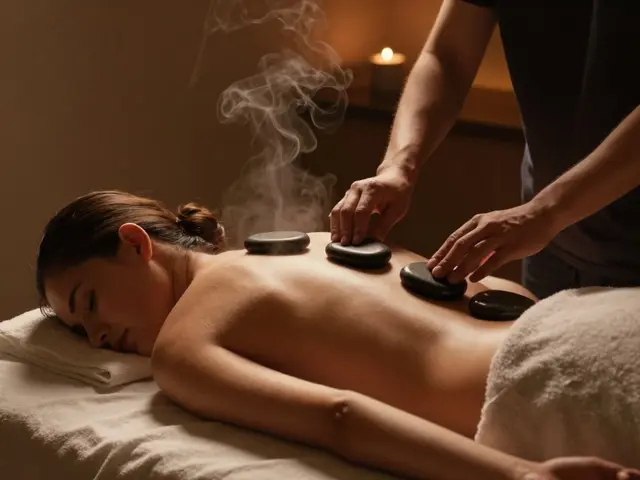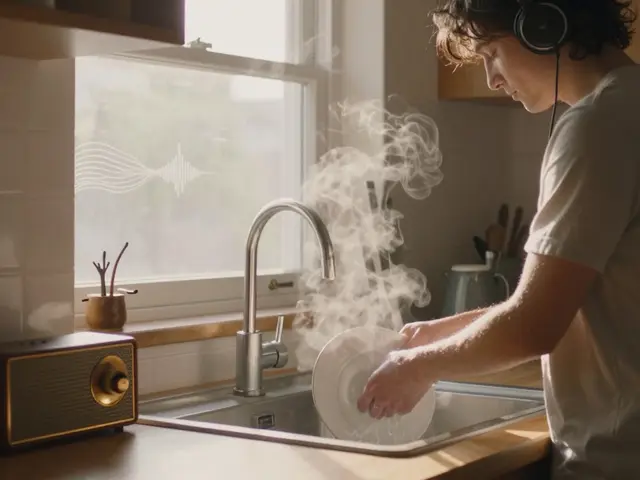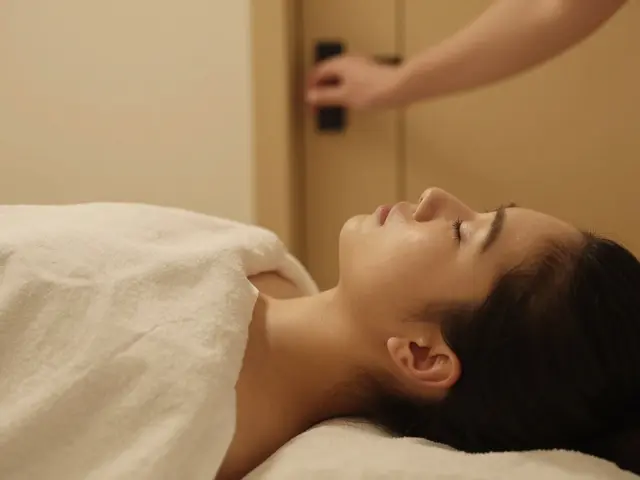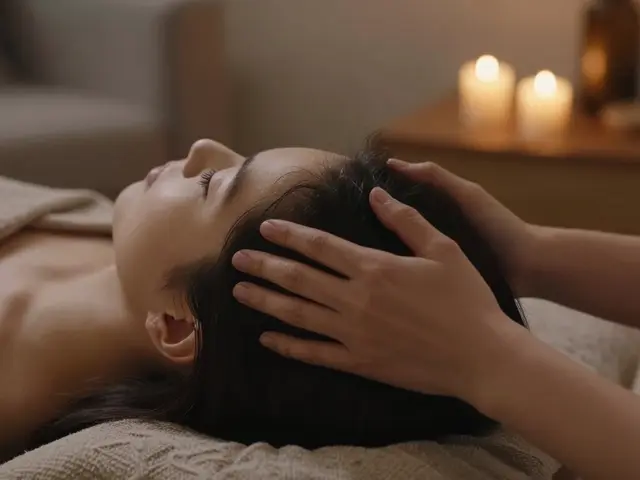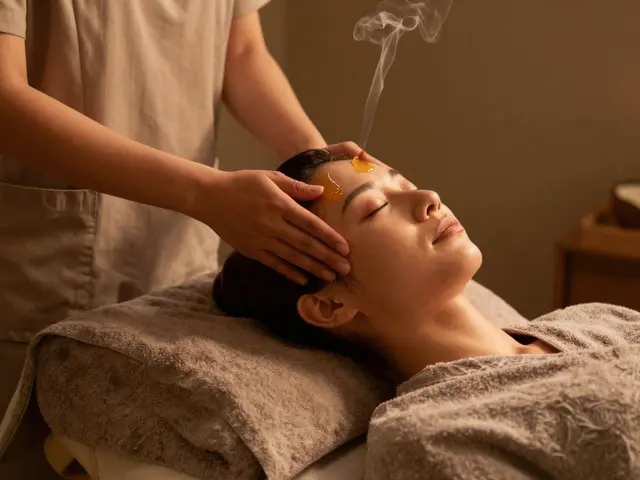Ever felt your shoulders hit your ears from tension, only to realise you've been hunched over your phone or laptop for way too long? The city can do that to you. Between the never-ending hum of traffic and queues at Pret, it's easy to forget how it feels to be truly relaxed. That’s why Thai massage in London is more than a luxury—it's a lifeline for city-worn bodies and minds. Forget your standard, half-hearted back rub: this is next-level stuff, mixing ancient wisdom with hands-on knowhow. You step in feeling like spaghetti that’s been left out too long, and walk out moulded back into your original self. The thing is, most of us don’t realise just how transformative it can be. Science backs it up, too: studies in the Journal of Bodywork and Movement Therapies show Thai massage significantly reduces stress and anxiety after just one session. What’s wild is how much this age-old technique—born centuries ago in Buddhist temples—is perfectly suited for 21st-century London life. But if you’re picturing incense, waterfalls and vague chanting, you might be in for a surprise.
Why Thai Massage Hits Different: Ancient Roots, Modern Stress Relief
Thai massage isn’t just about relaxation—though that bit is lovely of course. It’s a blend of acupressure, stretching, and deep tissue kneading. Picture yoga, but with someone else moving your body for you. Therapists actually use their hands, elbows, knees, and sometimes even their feet. Don’t panic: it’s much gentler than it sounds. Most spas in London now offer different styles, so you can choose a soft, soothing session or something a bit more intense if you’re dealing with knotted-up muscles or stiff joints. The magic dates back over 2,000 years, believed to have started with Jivaka Kumar Bhaccha, physician to the Buddha (yes, that Buddha). Fast-forward to London 2025, and the city now boasts more than 115 certified Thai massage spots, each one offering an urban escape for your body and brain.
What makes Thai massage so powerful? For one, the combination of pressure points and yoga-style stretching helps improve blood flow, flexibility, and muscle tone all at once. University of Michigan research found measurable blood pressure drops and quicker muscle recovery among those getting regular Thai massages. You’re not just chilling out, you’re priming your body for less pain and better movement—the benefits linger far beyond the treatment room. Then there’s the mind part: because therapists go slow, with a meditative rhythm, you get that rare kind of mental quiet you only find after a good hike or when you nail a crossword. It’s tough to get elsewhere, especially inside the M25.
So what’s happening under your skin? Gentle rocking and stretching send messages to your nervous system to dial down the fight-or-flight response. At the same time, that targeted pressure tells tight muscles to relax their grip. You might even crack a few joints—think chiropractor meets yoga—leaving you with a surprising buoyancy when you stand up. And, unlike Swedish or aromatherapy massages, Thai therapy is usually done dry, or with minimal oils, leaving you relaxed without the slippery, just-mopped-floor feel.
But here’s the part people don’t talk about: Thai massage is as much about emotional reset as physical release. Therapists are trained to read your body language and energy, so it’s not some rote routine. If you’re feeling worn down by, say, three rainy commutes and a bad Ofsted report at your kid’s school (speaking from personal experience here), you’ll leave feeling like someone hit the reboot on your entire week. For parents with school-age kids in London, where every day can feel like a mission, that feels priceless.
Quick tip: always mention any injuries or health concerns before you start. Good therapists will tailor the pressure and stretches to suit your needs—especially handy if you’re recovering from a long run along the Thames or spending a bit too much time hunched over a computer.
| Stat | Fact |
|---|---|
| Number of Thai massage spas in London | 115+ |
| Avg. cost per 60-min session | £60-£95 |
| Muscle tension reduction (study) | Up to 37% after 1 session |
| Massage duration options | 30, 60, 90, 120 mins |
| Blood pressure drop (average) | 8 points after session |
Even if you’re new to it, your therapist will guide you: you don’t need to be flexible, just open to the experience. People I know from work who swore blind they were “too tense to relax” ended up converted after a single session—proving it’s not a style reserved for gym-goers or spiritual types. Anyone, any age, can benefit.

How to Choose Your Perfect Thai Massage Spot in London
With over a hundred Thai massage venues in the capital, finding the right spot is an art in itself. Not every spa is created equal, so how do you weed out the so-so from the sublime? First, look for proper certification. The best therapists usually hold accreditation from places like Wat Pho in Bangkok or UK bodies such as the Complementary Therapists Association (CThA). If you ever get offered a “Thai massage” that skips the stretches and acupressure, move on—it’s not the real deal. London has plenty of legitimate options, but with price points, locations, and specialties all over the shop, it pays to be choosy.
Ask friends for recommendations, sure, but take the time to read up on each place’s reviews and therapist bios too. Detailed feedback from regulars—especially comments about the cleanliness of the space, therapist expertise, and the vibe of the place—make a world of difference. Sites like Treatwell and Google Reviews usually offer an unfiltered peek. It’s worth noting: a fancy interior doesn’t always guarantee the best technique. Some of London’s most respected Thai massage clinics look unassuming from the street, tucked above greengrocers or next to nail bars. Don’t be put off by modest entrances.
Location matters, especially if your only free hour is squeezed between work and school pick-up. Outposts in Soho, Kensington, or Shoreditch might be easier for some, while others in Clapham or Angel offer a quieter, more local feel. And remember, pricing doesn’t always reflect quality. Some of the best sessions I’ve had have come from family-run shops with years of experience and simple surroundings.
If you’re a first-timer, don’t be shy about ringing up and asking questions. What’s their approach? Do they recommend full-body, or can they target just the shoulders and back? Are they cool with you wearing comfy clothes, or are you expected to change into spa-issued loose pyjamas (standard for traditional Thai, by the way)? Check for their hygiene and COVID safety steps too—not just wipe-downs but fresh linen between every client. If your therapist listens well to your concerns, you’re probably in a good spot.
Now, a good Thai massage can be intense, especially if you’re unused to deep pressure or stretches. Don’t suffer in silence—if something’s too much, speak up. A skilled therapist will adjust instantly. You want to walk away feeling renewed, not roughed up. And here’s a pro tip: appointments late in the afternoon or evening tend to feel extra blissful, as you can float home and sink straight into the best sleep you’ve had all month.
For those looking for something extra, some London spas offer “herbal compress” add-ons—think steaming pouches filled with lemongrass, turmeric, kaffir lime and ginger pressed against sore muscles. It’s a sensory upgrade that’ll have you hooked. Or try a couples’ session if you want to share the experience with your partner. Don’t be surprised if the therapeutic effects last days. My partner regularly thanks me for introducing her to the real Thai massage, rather than the watery imitations she’d tried before.
- Thai massage London: Look for spas with certified therapists.
- Book ahead, especially on weekends.
- Wear loose, comfy clothing unless told otherwise.
- Arrive 10 minutes early to settle in and let your mind unwind.
- Don’t eat a heavy meal right before—not pleasant during those stretches.
- Stay hydrated after your session to help flush out toxins.
- Ask about booster options like oils, balm, or herbal compress if your muscles are extra tight.
London life isn’t about to move at a slower pace any time soon, but you can choose how you recover. Finding your ideal spot takes a little patience, but it pays off every time you see that familiar smile and feel those first stretches ease your tension. You might just discover your new favourite ritual.

Health Perks, Unexpected Benefits, and Aftercare—What Really Happens Post-Massage
So what happens after your sixty (or even ninety) minutes of bliss? Sure, your muscles feel looser, but that’s just the start. One of the things that surprised me most the first time—a proper Thai massage can fire up your metabolism. For a few hours after, you might feel a warming sensation in your limbs, almost like you’ve done a workout but without the sweat. That’s circulation perks in action. Enthusiasts often report better digestion and less water retention, likely due to the squeezing, twisting and pressing that’s part of the session. Got stubborn lower back pain or an old shoulder niggle? Thai therapy is known for its long-lasting effect on chronic tension. After checking with a physiotherapist mate, I found out some NHS pain clinics even recommend it as a sidekick to conventional treatments.
You’ll also find your range of motion improves. If, like me, you spend hours wrangling with awkwardly-sized Ikea furniture or lifting kids who think you’re a climbing frame, those gains are priceless. A random but true fact: Thai massage is often used as prep for dancers and actors in the West End, as the deep stretches help prevent strains on stage. It’s that versatile. One friend swears his regular monthly sessions mean fewer colds, as the increased blood flow boosts immunity. While the science on cold prevention is mixed, there’s no doubt a better rested, less stressed body recovers faster when it does get run down.
Now, aftercare is key if you want results to last. Always drink plenty of water post-massage, as your body needs to flush out metabolic by-products the treatment releases. Don’t leap straight into a high-intensity gym class—give your muscles a day to recalibrate. If possible, savour one or two quiet hours. Those stretches can trigger your body’s parasympathetic “rest and digest” mode, and you don’t want to cut that short with a mad dash home or straight back to the grind.
Sometimes, you’ll feel a bit achy a day or two later, especially if the massage was intense. That’s totally normal—your muscles have had a wake-up call. Light walking, a warm bath, or gentle stretching can help. My eldest, Eldon, likes to call it “being put back together,” since after a good session I’m noticeably less snappy at home. There’s no shame in booking yourself another session a week or two later, especially if you’re working towards injury recovery or hitting big deadlines at work. Regularity pays off; expert recommendations suggest every 2-4 weeks for maximum benefit if your schedule and wallet allow it.
For anyone still unsure if it’s for them: most reputable spas offer taster sessions or mini-massages. Try 30 minutes on neck, back and shoulders—they’re a no-strings way to dip your toe in. Even the skeptics in my circle usually come out beaming, muscles lighter, mind less cluttered. It’s a small investment for a big mood reset.
Beyond the body and mind perks, Thai massage also supports community and tradition. Many London therapists are trained in Thailand and bring generations of expertise. Go often enough, and you'll build a rapport with your therapist—some become like family, asking after your kids, remembering how you take your tea. In an ever-busy, sometimes lonely city, it’s one of the few spaces where you’re the centre of caring attention. And that, in its own way, is reason enough to book in and discover what bliss really feels like.




